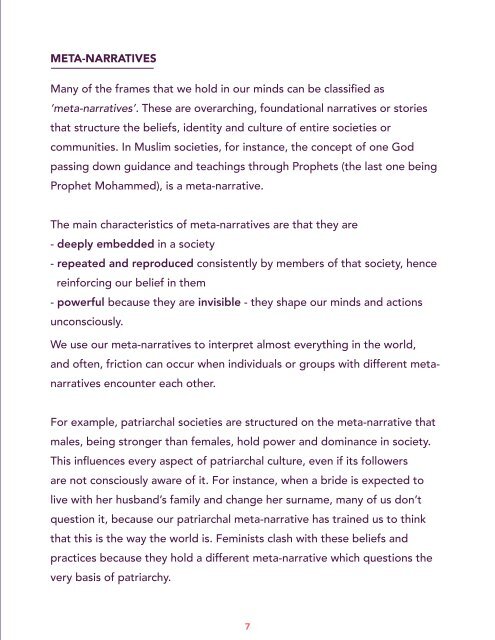Sahiyo Communication Guide
Create successful ePaper yourself
Turn your PDF publications into a flip-book with our unique Google optimized e-Paper software.
META-NARRATIVES<br />
Many of the frames that we hold in our minds can be classified as<br />
‘meta-narratives’. These are overarching, foundational narratives or stories<br />
that structure the beliefs, identity and culture of entire societies or<br />
communities. In Muslim societies, for instance, the concept of one God<br />
passing down guidance and teachings through Prophets (the last one being<br />
Prophet Mohammed), is a meta-narrative.<br />
The main characteristics of meta-narratives are that they are<br />
- deeply embedded in a society<br />
- repeated and reproduced consistently by members of that society, hence<br />
reinforcing our belief in them<br />
- powerful because they are invisible - they shape our minds and actions<br />
unconsciously.<br />
We use our meta-narratives to interpret almost everything in the world,<br />
and often, friction can occur when individuals or groups with different metanarratives<br />
encounter each other.<br />
For example, patriarchal societies are structured on the meta-narrative that<br />
males, being stronger than females, hold power and dominance in society.<br />
This influences every aspect of patriarchal culture, even if its followers<br />
are not consciously aware of it. For instance, when a bride is expected to<br />
live with her husband’s family and change her surname, many of us don’t<br />
question it, because our patriarchal meta-narrative has trained us to think<br />
that this is the way the world is. Feminists clash with these beliefs and<br />
practices because they hold a different meta-narrative which questions the<br />
very basis of patriarchy.<br />
7



